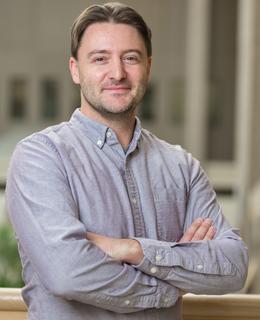
Jonathan Epp
Positions
Assistant Professor
Cumming School of Medicine, Department of Cell Biology and Anatomy
Full Member
Hotchkiss Brain Institute
Contact information
Background
Educational Background
BSc Neuroscience, University of Lethbridge, 2003
MSc Neuroscience, University of Lethbridge, 2005
Doctor of Philosophy Neuroscience, University of British Columbia, 2010
Post-Doctoral Fellowship Neuroscience, Hospital for Sick Children, 2017
Biography
Jonathan Epp is an Assistant Professor in the Department of Cell Biology and Anatomy at the University of Calgary Cumming School of Medicine. Dr. Epp's research interests focus on understanding the mechanisms that support learning, memory and forgetting. His lab is particularly interested in exploring how adult neurogenesis balances memory and circuit stability versus learning and circuit plasticity.
Research
Areas of Research
My two primary research interests are in the areas of learning and memory and adult neurogenesis. Specifically, I am interested in memory consolidation and the persistence of memory over time, the underlying neural mechanisms that support this and the pathological conditions that interrupt normal memory processes. An overarching aim is to address questions related to these research topics at multiple levels of analysis. For example, memory stability may relate to synaptic function and spine dynamics (i.e. microscale changes) however I am also interested in investigating the mesoscale and macroscale organization of memory. This can be approached by studying the functional connectivity of different regions throughout the brain.
With respect to adult neurogenesis I am interested in understanding the functional consequences of adding new neurons into existing circuitry. We have previously shown at the behavioural level that adult neurogenesis provides a mechanism for reducing memory interference by enhancing forgetting of old memories. I am now interested in examining how this occurs at the cellular and network level and whether this can be applied to conditions such as dementia or age-related memory loss where memory interference can be a substantial problem.
Participation in university strategic initiatives
Courses
| Course number | Course title | Semester |
|---|---|---|
| MDSC 61902 | Sys Neuroscience & Neuropath |
Publications
Are you the profile owner?
Login to edit.
